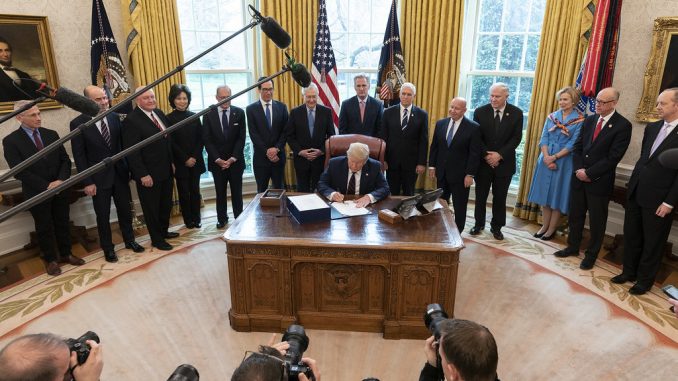
The government’s coronavirus relief bill will give most Americans a $1,200 support check in response to the financial burdens brought on by the COVID-19 pandemic, but leaves many college-aged students in the dust.
The federal government passed the Coronavirus Aid, Relief, and Economic Security (CARES) Act, which offers $2.2 trillion towards tax-paying Americans in an attempt to ease some of the economical stress caused by COVID-19 lockdowns.
This bill is set up to give $1,200 to any single-filing individual that has a Social Security Number (SSN), is not claimed as a dependent on someone else’s tax forms and has an adjusted gross income (AGI) under $75,000, according to the Tax Foundation. If that individual also has a child 16 years old or younger, they will be awarded an extra $500 per child. Joint-filers’ AGI must be under $150,000, and heads of household’s AGI must be under $112,500.
The IRS will use 2019 tax returns to determine how much an individual will receive from the CARES Act. If the 2019 tax return hasn’t been filed yet, they will use 2018 tax return numbers.
To the dismay of many, key groups in need of aid have been left out of the CARES Act. Anyone over the age of 16 who is claimed as a dependent will not receive a $1,200 check, and the person who claimed them will also not receive the extra $500 check, frustrating many college students.
“I now don’t have a job, but still have bills and student loans to pay,” said third-year education major Emily Riexinger. “Since I am claimed as a dependent, I won’t receive the $1,200 and my parents also won’t receive $500 for me, which makes no sense. If the government is claiming adult dependents rely on their parents for most things, why are [the parents] not receiving the extra $500 to help pay for groceries or bills while all the college students are now back home?”
In addition to losing on-campus and school-related jobs due to campus closures, college-aged students are more likely to be at risk for unemployment.
“Among the 19.3 million workers ages 16 to 24 in the economy overall, 9.2 million, or nearly half, are employed in service-sector establishments,” according to the Pew Research Center. “Younger workers make up 24% of employment in higher-risk industries overall, and many establishments in these industries are facing a high likelihood of closure in areas with more severe COVID-19 outbreaks.”
“Our entire lives have been uprooted,” said third-year public relations major Danielle Falley. “Most of us are working in retail or have been laid off because of the coronavirus. It’d be nice to get some help from the government like everyone else.”

